13 Best Foreign Films of 2014
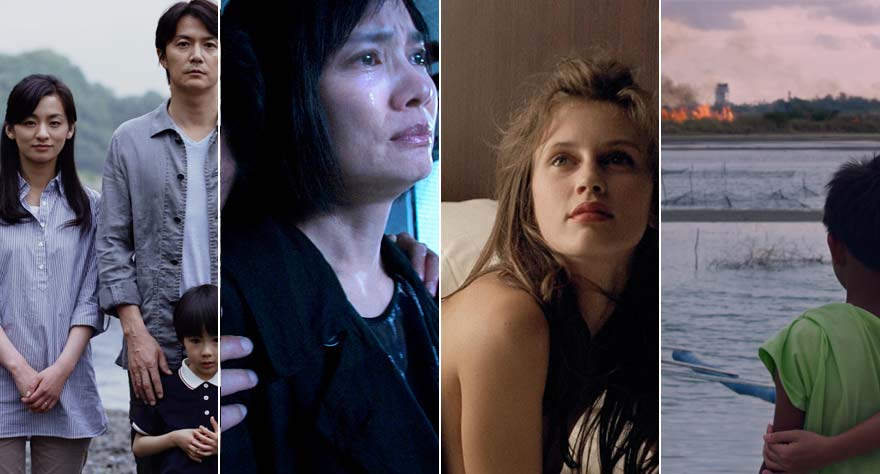
With 2014 coming to a close, the tradition of an annual post-mortem begins. Was 2014 a good year? A bad year? Do the highlights outweigh the lowlights, or vice versa? While everyone will have an opinion on the quality of 2014’s output in film, one point will be hard to dispute: a lot of great foreign films came out this year.
That’s why we put together this list of the 13 Best Foreign Language Films of 2014. Three of these picks are quite obvious; they also placed on our list of the 20 Best Films of 2014 (with two placing in the top ten). The other ten are just as good in our eyes, placing on some of our individual ‘Best Of’ lists for the year, and in some cases came extremely close to placing on our main list. These 13 films make up a diverse list, but they’re all unique, challenging and thought-provoking in their own ways. Watch any film on this list, and you won’t regret it.
Way Too Indie’s 13 Best Foreign Language Films of 2014
A Girl Walks Home Alone At Night
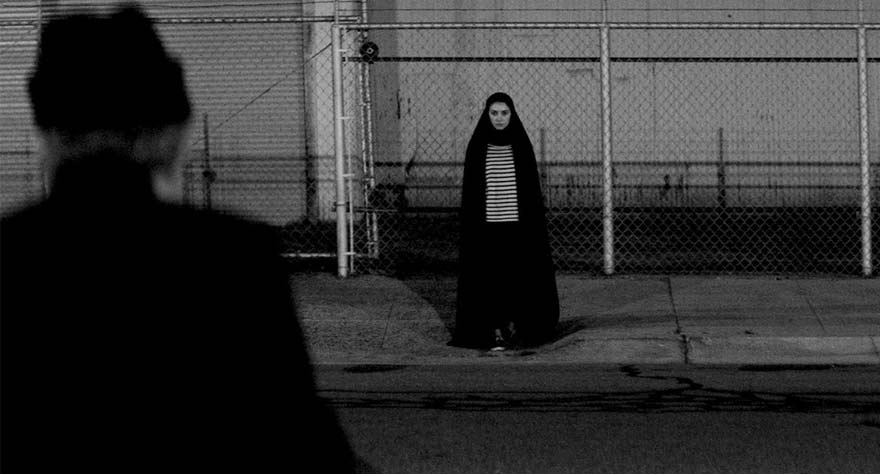
There have been many movies like A Girl Walks Home Alone at Night in that there have been many movies that borrow stuff from other movies. Ana Lily Amirpour’s alluring debut feature is a rarity, however, in that it gives back what it takes, honoring its inspirations (Leone, Kiarostami, various horror classics) by using their wisdom to create something wholly new and exciting rather than retreading old ground. Amirpour’s out-of-nowhere use of vampire mythology to comment on Iranian gender politics is ingenious, and if heavier things like foreign gender inequity doesn’t suit your fancy, the film operates perfectly as a vintage romance, a pulpy street drama, and a moody horror piece as well. It sounds like a hodgepodge, but it’s not; everything fits snugly in its right place. Shot in Bakersfield, California in inky black and white, the film is a vision (especially for a shoestring production) much like lead actor Sheila Vand, the vicious vampire in a chador who quickly tears apart any notions of “vulnerable females” the film’s title suggests. [Bernard]
Force Majeure
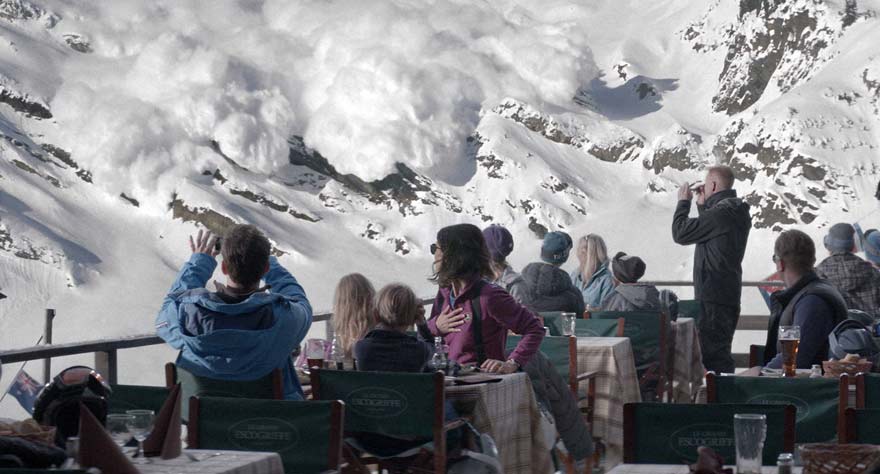
The winner of Cannes Un Certain Regard Jury Prize has a premise so intriguing that it can be hard to see the film’s other qualities. Particularly how beautiful Force Majeure films the scenic French Alps, holding shots long enough to let its central character ski off into the snowy fog. The story here is a family takes a ski vacation and gets engulfed in the snow cloud of a controlled avalanche; however, in the panic, the father Tomas (Johannes Kuhnke) briefly abandons his wife and two children. From there, Ruben Östlund’s film illustrates the damage this impulse has on the psyche of Tomas, his wife Ebba (Lisa Loven Kongsli), and their two young children. Force Majeure can be uncomfortable to watch but Östlund mines those moments for wonderfully honest laughs. If rumors of an upcoming American remake are true, it’s easy to imagine Jason Sudekis turning Tomas into a broadly comic role. In this highly original Swedish gem, both Kuhnke and Kongsli deliver hilariously understated performances that can demonstrate the evolving relationship dynamic with a simple glare. It’s all so good that Force Majeure took up two spots on Way Too Indie’s Best Scenes of 2014 list. [Zach]
Ida
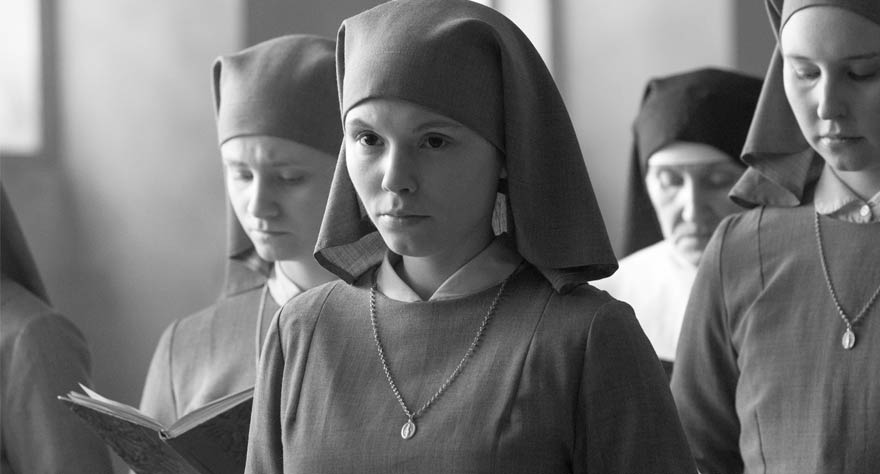
“The brilliance of Pawel Pawlikowski’s Ida starts with the bleak elegance of its aesthetic: a black-and-white palate presented in a 4:3 aspect ratio that is haunting in its simplicity.” Read Michael’s take on the film in our Best Films of 2014 feature.
Leviathan
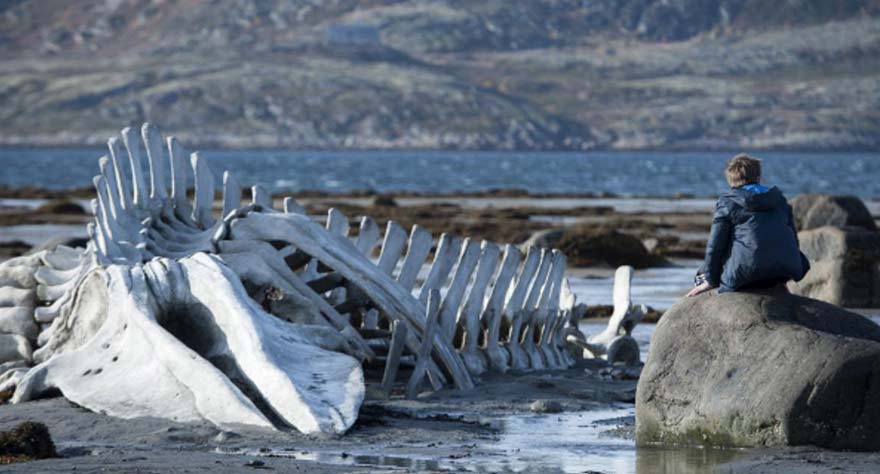
Russian cinema has historically given us some of the most aesthetically refined and formally adept films ever. From Eisenstein and Vertov, through Kalatozov and Tarkovsky, Russia was prosperous during its Soviet era. Recent times, though, haven’t been as kind, and if Andrey Zvyagintsev has anything to say about it, that’s all about to change. Of course, with his latest masterwork Leviathan, he says so much, especially since the actual state of Russia is a crucial character in itself. Nikolai (Aleksey Serebryakov, in an Oscar-worthy performance) is desperately trying to hold on to everything that makes life in his little town by the Barents Sea complete. His wife Lilya (Elena Lyadova) and best friend Dmitry (Vladimir Vdovichenkov), a lawyer from Moscow, act as his support group against the town’s mayor (Roman Madyanov, in an Oscar-worthy performance) who has plans to demolish his house and build corporate property over it. The film is an incisive examination of stifled life under a labyrinthine structure of corruption, a deeply profound story with the kind of sensibilities of fragile human condition on par with the greatest Russian novelists. Zvyagintsev directs Leviathan as a man who is one hundred percent in sync with the invisible powers of the moving image, and with his fantastically talented team (both behind and in front of the camera), is raising cinematic standards for Russian cinema yet again. [Nik]
Like Father, Like Son
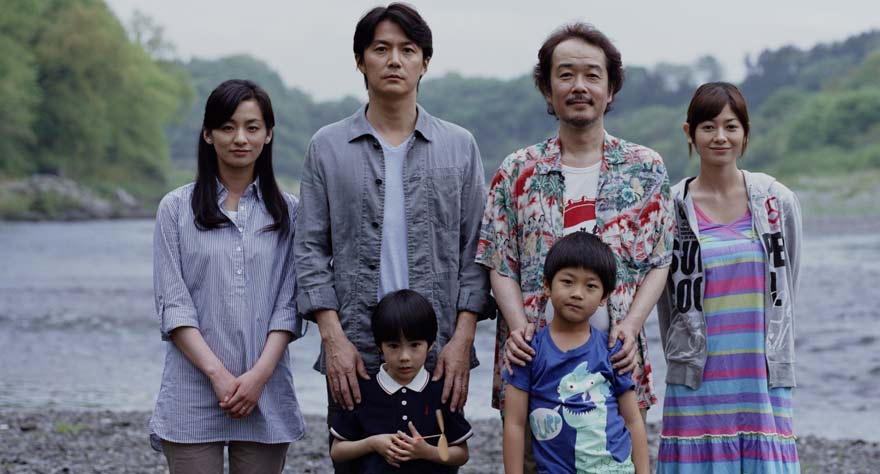
The “switched at birth” premise sounds far more suitable for a goofy ’80s comedy or a made-for-basic-cable tearjerker than it does a modern Japanese drama. Yet in writer/director Hirokazu Koreeda‘s skilled filmmaking hands, the sublime Like Father, Like Son uses the premise mostly as a hook, pivoting off it to take a deeper look at fatherhood, nature vs. nurture, and providing vs. participating. When two sets of parents are told their six-year-old (!) sons were accidentally switched at birth, decisions must be made. The parents decide because six years have passed, the children should be gradually integrated into the opposite family’s life, with the long-term goal being a permanent switch. The slow-play not only proves to be more difficult than originally thought, it allows a patient length of time (months in the film) for a meaningful tale to be told and considerable emotional impact to be felt. It also prevents the story from being hijacked by manufactured, panic-fueled melodrama. Everyone in the cast is excellent, but Masaharu Fukuyama shines as the financially comfortable but career-driven father who must come to terms with more about himself and his past than he was prepared to do. How do you say “Pass the Kleenex” in Japanese? [Michael]
Norte, the End of History
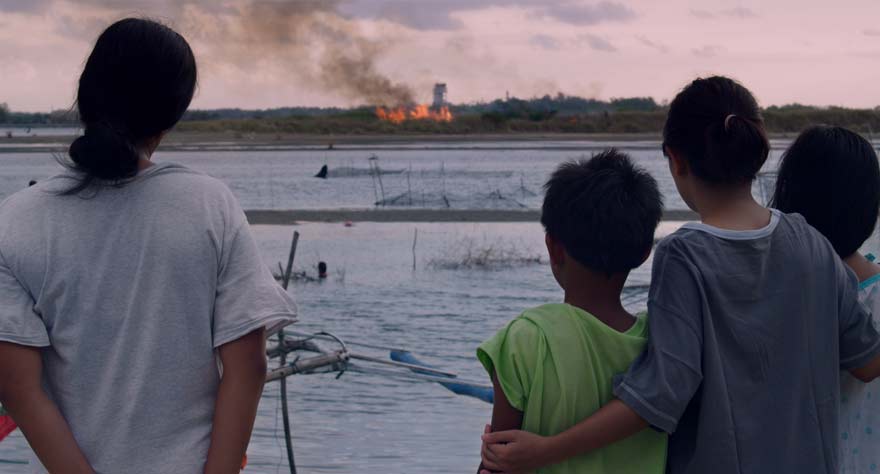
Zvyagintsev’s Leviathan may be this year’s closest example to the humanistic depth of a Russian novel, but Lav Diaz’s Norte, the End of History took a Russian classic and turned out a sprawling four hour re-imagining set in the Philippines almost to singlehandedly prove how quickly cultural barriers can shatter when you use art as the hammer. This is Dostoevsky’s Crimes and Punishment as seen through the glacially paced and enormously immersive world of Lav Diaz, alienating mainstream audiences since 1999. In case you haven’t read our review, we’re big fans. Norte sees Fabian (Sid Lucero, who does really brilliant work here considering the scope and the evolutions his character goes through) as the Filipino Raskolnikov, committing murder more as an attempt to reach a philosophical conclusion than out of practical reasons, and left disillusioned. Diaz’s branches away from Dostoevsky most vividly because he pays equal attention to the man Fabian accuses of the murder, and the man’s wife left to fend for herself and her children. In this way, Norte is more of an expansion than an adaptation, where the gorgeous milieu photographed with a keen sense for environment by Larry Manda leaves Diaz’s imagination to take center stage and pull you into an incredibly involved story of crushed human spirit. Here lie the fastest four hours of the year. [Nik]
Stranger by the Lake
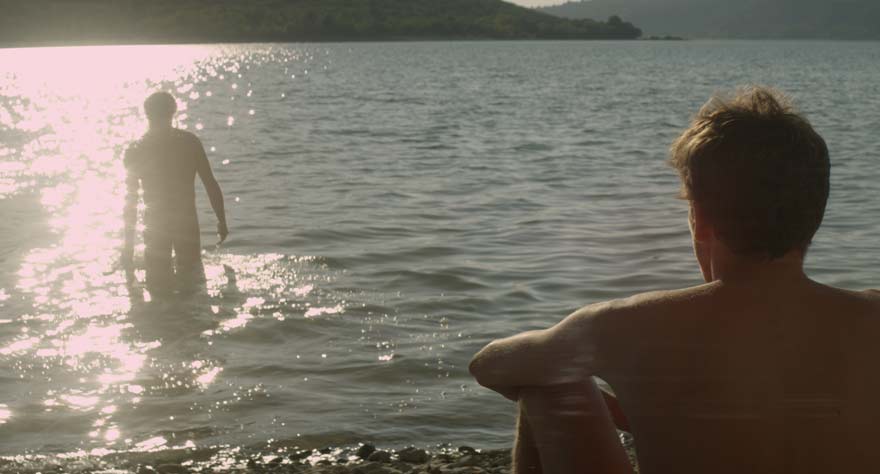
I find it interesting to note about myself that my capacity for the audacious and erotic in a film goes up substantially when it happens to be foreign. I imagine it’s how non-Americans feel about the way their capacity for pyrotechnics and CG must increase to watch our films. Even so French film Stranger by the Lake pushed me to the edge of my extended limits. This homoerotic thriller feels like a combination of an adolescent summer outdoor romance, mixed with a Hitchcockian thriller, mixed with gay porn. But put it all together and it’s an engaging look at the extent to which lust and emotions can cloud our judgement. Franck (Pierre Deladonchamps), an overly lubido-driven and naively romantic man, spends his days at the lake looking for sex and possibly love. He finds instant lust for Michel (Christophe Paou), a tall, dark and handsome man known for his hard-to-get ways. So great is his attraction, he turns a blind eye when he sees Michel unceremoniously dump a lover he’s grown weary of by drowning him in the lake. Without making any statements Alain Guiraudie’s minimalistic film explores varying levels of attraction and the very human habit of misplacing feelings. While all the sex feels absurd, its really only a backdrop to the tensions at play. And those tensions build to a harebrained ending that while thrilling, mainly serves to show the extent to which we are capable of lying to ourselves. [Ananda]
The Strange Little Cat
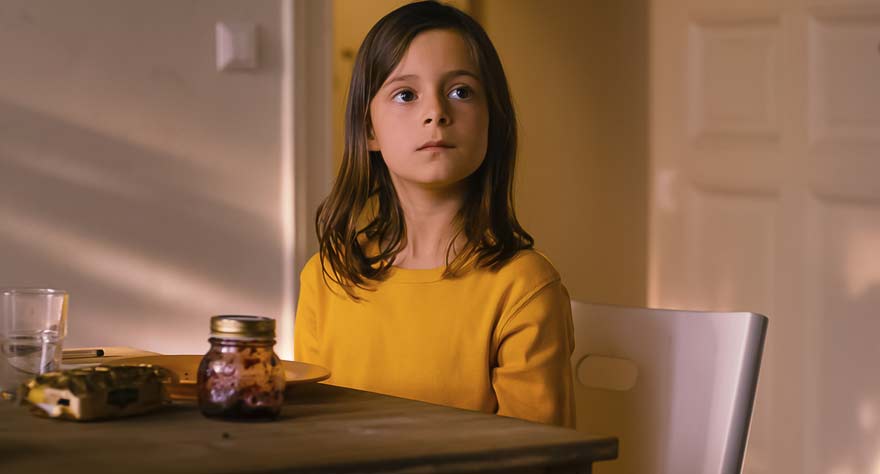
Ramon Zurcher’s The Strange Little Cat is fiercely non-narrative and non-mainstream. A real-time examination of a German apartment during a busy day, the film zooms at a brief 72 minutes, with its characters entering and exiting still frames, simply living their lives. While the plot rambles through conversations, the film has an uncanny attention to detail. The camera’s eye seems to wander until it catches something interesting to witness or study – in one of my favorite scenes this year, we watch an entire game of Connect Four played without any conversation or distraction. I don’t know if The Strange Little Cat has a lot of deep, hidden meaning, but it is a strangely addictive and entertaining film. And, yes, there is a cat, though it really isn’t all that strange. [Aaron]
Stray Dogs
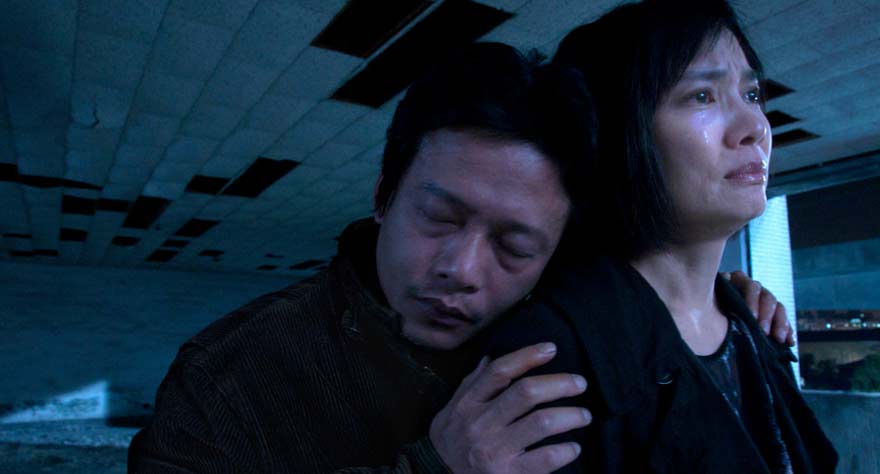
I’ll get straight to the point: Stray Dogs is a masterpiece. Director Tsai Ming-Liang’s final feature film finds him setting his sights on a family in poverty, a topic fitting his slow, patient, and uncompromising style perfectly. With Tsai’s muse Lee Kang-Sheng playing the father, Stray Dogs follows him as he tries to support his two children with menial work, including a job as a human billboard. For these characters, time takes on a different meaning, and Tsai’s approach to cinematic duration similarly breaks conventions. These people simultaneously struggling and stagnate, and Tsai’s static camera captures a range of emotions through shots that sometimes go past the ten minute mark. I haven’t even mentioned how immaculately composed all of these shots are, making it quite easy to stare at them for what can feel like an eternity. And I haven’t said a word about the film’s baffling and incredible second half, where Tsai hits a sort of reset button that suddenly introduces one surreal and achingly gorgeous image after another. Stray Dogs may be challenging to watch, but if you’re willing to adjust to Tsai’s rhythms, the results reach a level of transcendence few other films can achieve. [C.J.]
The Tale of the Princess Kaguya
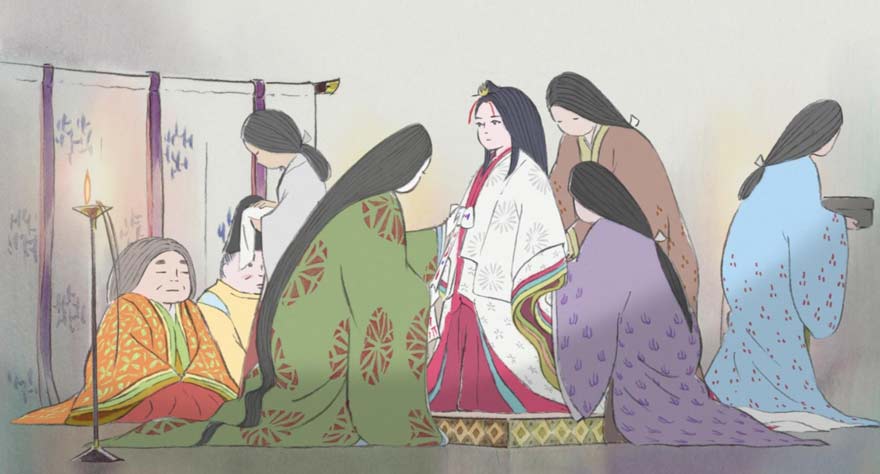
Isao Takahata, considered by most to be Studio Ghibli’s second fiddle, made what might be the best work of the great Japanese animation house. The Tale of the Princess Kaguya isn’t as emotionally devastating as Takahata’s The Grave of the Fireflies, but it is every bit as rich in character, theme and story. The tale of the fairy princess is both lightly entertaining and expansive, with elements of fantasy, nature, humor, tragedy, romance, quest, history, and tradition in Japanese jidaigeki. Stylistically, this is one of the most beautiful animations I have ever seen. I’m not someone that usually cries out when technological advances pushes out the old ways of movie making, but this is a prime example of the possibilities and, frankly, the necessity of hand-drawn animation. I don’t know much about the actual production, so I don’t know how much of the film is man-made vs. computer generated, but there is something intrinsic about the animation that hits on a higher level. The wispy, dreamlike movements of the characters and environments are the perfect way to tell this story. With The Tale of the Princess Kaguya, Isao Takahata has capped off a stellar career with a stellar work, a wonderful tribute to animation and Japanese storytelling. As he moves on, The Tale of the Princess Kaguya is surely the type of film that will inspire film artists around the globe interested in stories with emotionally complex narratives and extraordinary focus in style. [Aaron]
Two Days, One Night
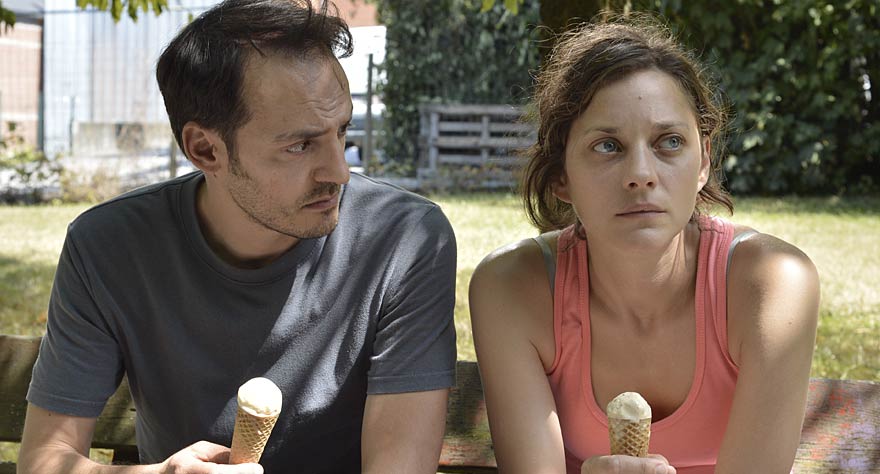
“…in Two Days, One Night, [the Dardenne Brothers’] first collaboration with an A-lister proves to be terrific, and for fans, assuaging.” Read Bernard’s take on the film in our Best Films of 2014 feature.
Winter Sleep
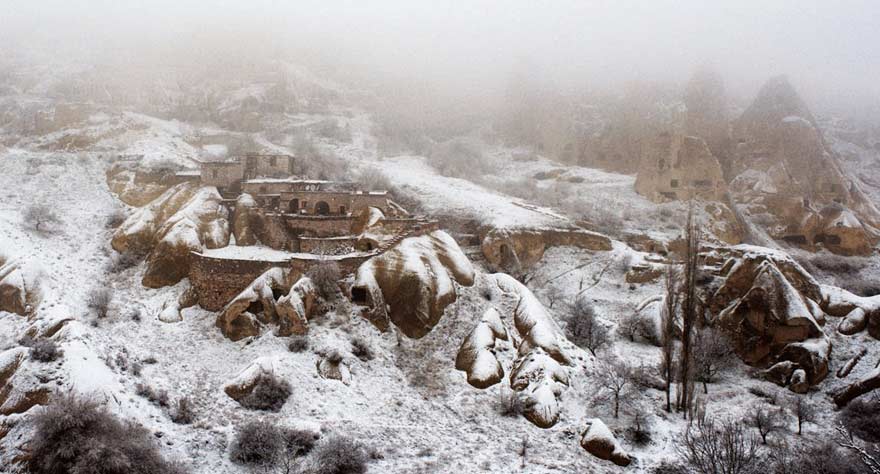
“…there’s simply no other film that will suck you into its world faster and smoother than this opulent Turkish delight.” Read Nik’s take on the film in our Best Films of 2014 feature.
Young & Beautiful
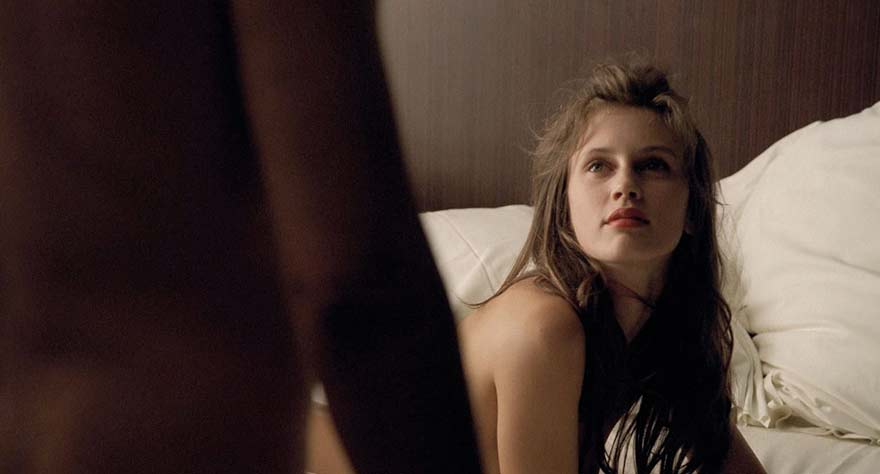
Leave it to provocative French filmmaker François Ozon to explore adolescent sexuality with masterful style and deliberate focus. Ozon divides Young & Beautiful into four seasons, observing Isabelle (Marine Vacth in an exceptional breakout performance) as she enters her sexual discovery phase near her 17th birthday. In the beginning her actions are innocent enough, losing her virginity during a summer vacation. However, when the film jumps ahead to autumn, she’s secretly working as a high-class prostitute. With someone else behind the wheel Young & Beautiful could have easily veered into softcore porn territory, but Ozon’s skillful artistry shines through in this voyeuristic coming-of-age study. The film astutely observes teenage rebellion and self discovery without misplaced melodrama, manipulating emotions, or judging its characters. For those reasons Ozon allows the audience to draw their own conclusions, making Young & Beautiful an excellent conversation piece. [Dustin]
Honorable Mentions
We always want to spread the love at Way Too Indie, and some of us felt so passionately about certain candidates for this list that we had to give them a mention of some sort. Lukas Moodysson’s We Are The Best! is a total blast, a film combining the rebellious nature of punk with the innocence of youth perfectly; Pascale Ferran’s diptych Bird People is, by far, one of the year’s most daringly original films of the year; Yuval Adler’s Bethlehem is a taut, compelling procedural from Israel; Sergei Loznitsa’s Maidan stands alongside Citizenfour as one of the year’s most vital documentaries; Sean Ellis’ Metro Manila proves that a familiar story can still feel exciting when done right; and Alex van Warmerdam’s Borgman is as funny as it is baffling, turning out to be one of 2014’s true curiosities.
